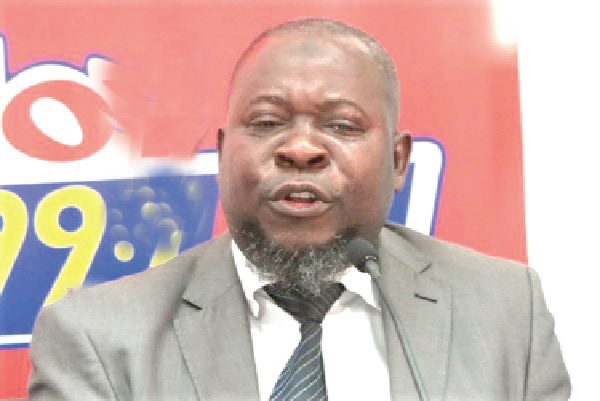
Economist calls for independent body to monitor debt
Executive Director of the Institute of Fiscal Studies, Dr Said Boakye, has called for an independent body to monitor the country’s fiscal space.
He said the independent body, when established should act as a check on government’s spending and borrowing to ensure that the country did not find itself in another debt crisis.
His comments come on the back of the government’s decision to amend the Fiscal Responsibility Act to include a cap on how much debt any government can take on in a fiscal year.
Speaking in an interview with the Graphic Business, he said while introducing a cap on debt was commendable, what was more critical was an independent body to do the monitoring.
He said the body should be free from government influence unlike the Fiscal Responsibility Council, which was established under the Fiscal Responsibility Act.
“Most often, they introduce these laws and they include clauses that allow them to break those laws in the name of emergency.
“Any event at all can be described as an emergency so that is why we need an independent body to monitor that,” he stated.
Cap on debt
The Minister of Finance, Dr Mohammed Amin Adam, last week, announced that the government was seeking to amend the Fiscal Responsibility Act so government could borrow in a fiscal year.
The amendment, which is currently before Cabinet, is expected to be tabled before Parliament soon for consideration and approval.
This forms part of the country’s measures to maintain debt sustainability post the IMF the programme.
“We have to discipline ourselves as a country and that is why we have requested approval from Cabinet to amend the Fiscal Responsibility Act to set limits on debts,” he stated.
He said this would ensure that the country did not fall back into the past era of unsustainable debts.
Background
Ghana has been battling with unsustainable levels, a situation which prompted the country to seek support from the International Monetary Fund (IMF).
Under the three year programme, the country has restructured both its domestic and external debts, with the country recently receiving the approval of over 98 per cent of its Eurobond holders to amend the terms of its $13 billion debt.
The country has also reached an agreement with its bilateral creditors to restructure debts of about $5.1 billion. The government has also sent an offer to external commercial private banks and contractors which it owes about $2.8 billion for a possible restructuring of that.
Domestically, the country’s domestic debt exchange programme saw an impressive participation by local bond holders, with the government exchanging bonds worth over GH₵82 billion.
With the country’s debt returning to sustainable levels, the Finance Minister said it was important to put in place measures to ensure that the country did not find itself in this situation in the near future.
‘We will showcase and commit ourselves as a country to implementing measures that will sustain our debt levels to ensure that we continue to attract investments to grow our economy for the benefit of our people,” he stated.
Fiscal Responsibility Act
The Fiscal Responsibility Act, which was passed in 2018, was aimed at improving fiscal management and accountability in the country.
The Act sets a fiscal deficit ceiling of 5% of GDP in any given year; mandates that the government maintains a positive primary balance and requires the government to maintain public debt levels at sustainable rates.
The law also established an independent Fiscal Council to monitor compliance with fiscal rules and advise the government on fiscal matters.
Six years after its passage, many have argued that it has failed to achieve its purpose as the country continues to struggle with the management of its fiscal space.
Debt repayment
The minister said the government was also putting in place other measures to ensure that it was able to repay its debt when repayment resumed in 2026.
He said while the proposed amendments to the Fiscal Responsibility Act would not provide buffers to repay the country’s debts, the fact that it would limit how much could be borrowed would help instill some discipline.
“It will help us to continue to stay within certain limits of borrowing so that we do not move to unsustainable debt levels.
“And so, yes, it is important that we build buffers, but more importantly, we must discipline ourselves,” he said.